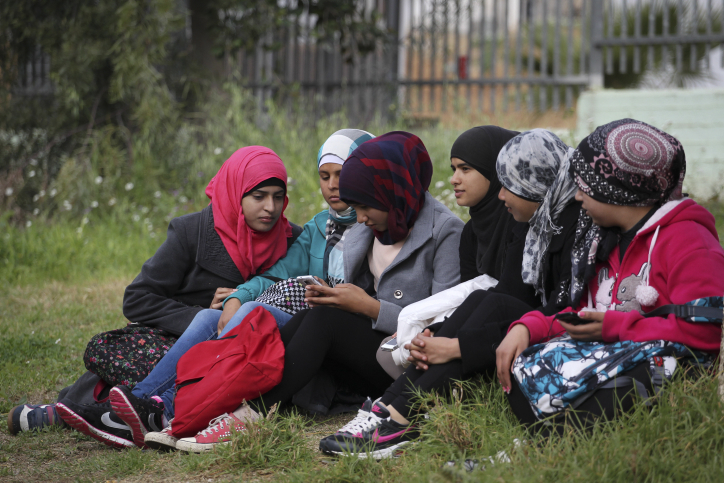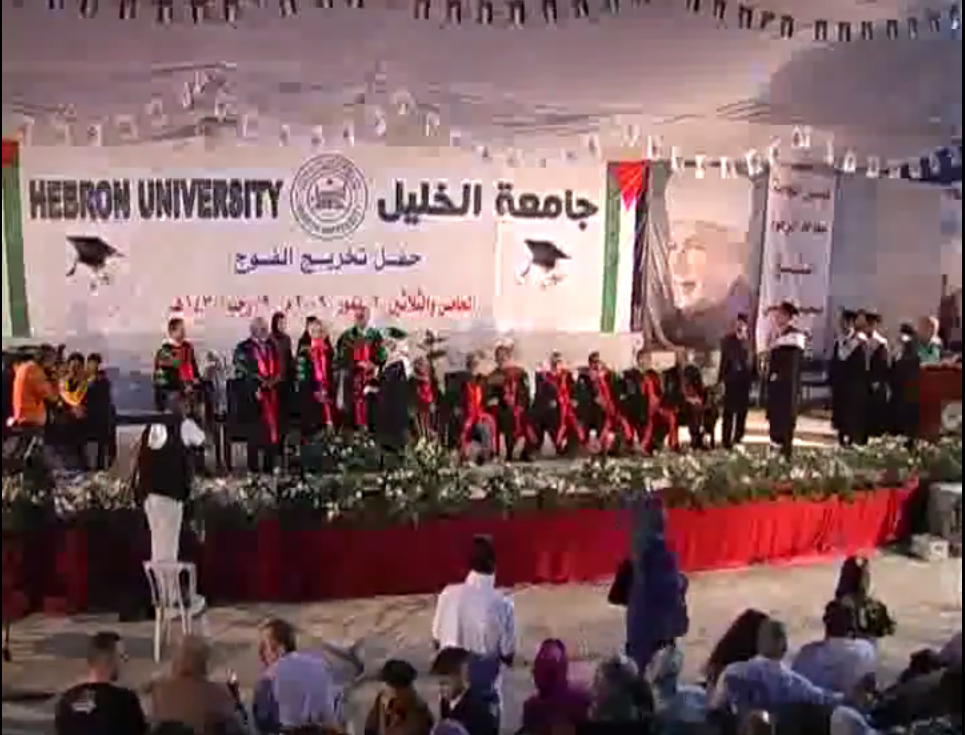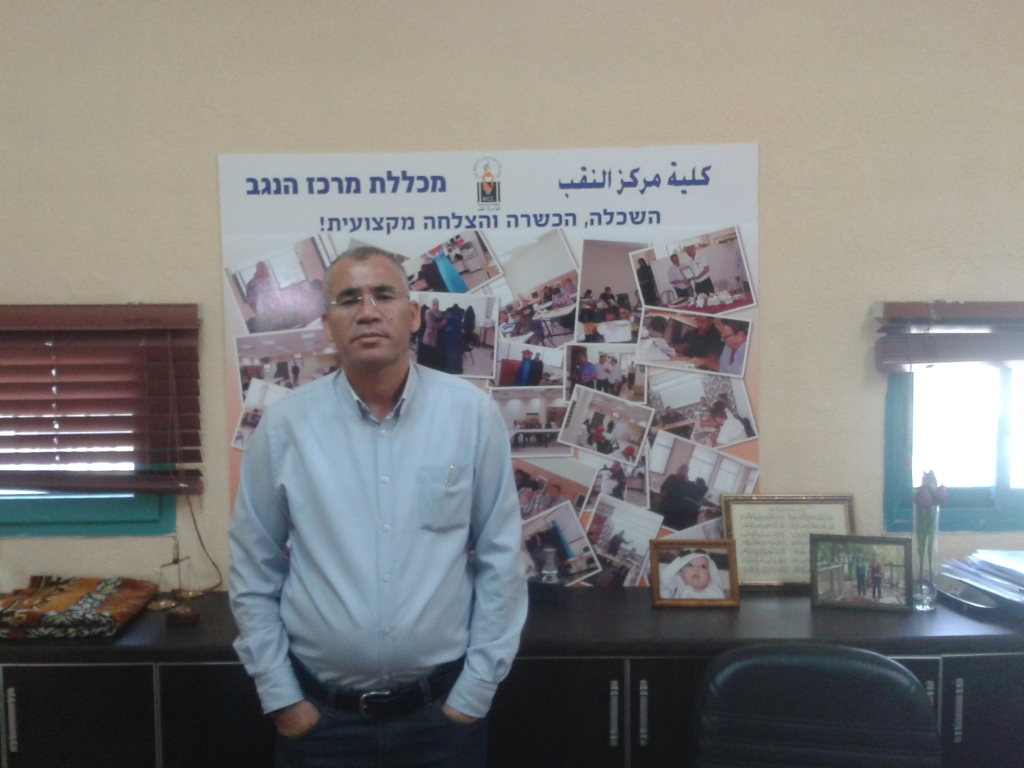Many Israeli Bedouin would like to study in Israel, but can’t due to high tuition and lack of a cultural fit. They end up in Islamist hot spots instead.
More than two thousand Israeli Bedouin students learn at Arab universities in the Palestinian Territories and in Jordan • There, they learn Islamic studies, a very anti-Israel version of Palestinian history and rub shoulders with fans of Hamas and ISIS • When these students return to occupy teaching positions in the Bedouin sector, it will be too late • Meanwhile, a designated college for Bedouin established to stop this trend has been blocked by the Council of Higher Education

The item on an Israeli Bedouin from the Negev dying fighting for ISIS stunned the Israeli public. After all, the fact that Dr. Othman Abu al-Qiyan, a specialist at Barzilai hospital, decided to give up a successful career to join the murderous organization really is hard to comprehend. But one detail in his biography might solve part of the puzzle: Othman completed his studies at Amman University in Jordan. The long period of study, during which he was isolated and far from home, may have made him an easy mark for recruitment.
Othman is not alone – over 2,000 Bedouin learn in universities in the Palestinian territories or in Jordan. Although many come to learn technical and pre-medical material – not exactly the stuff of radicalism – they are nevertheless exposed to radical Islamic ideologies during their studies.
Take the University of Hebron, for instance, where 1,800 Bedouin study. Even those studying pharmacy and medical science are required to take obligatory courses in “Islamic Culture” and “The Geography and Demography of Palestine.” In addition, said medical student has a number of optional courses such as “The Islamic System,” “Folklore and Literature in Palestine,” “Approaches in Muslim Education” and “The History of Hebron.”
In the framework of these courses, students are to learn about “the contemporary problems of Muslim society such as family planning, women’s employment and dress” and discuss the way in which Islam sees “the political system, the international system” and of course “the judicial punishment system.”
By the way, all these courses are given in the Department of “Sharia and Jurisprudence” in the College for Islamic Studies on the University campus.
The University also has a strong Hamas influence; the movement has consistently won a majority on the student council for the last ten years. The Hamas social atmosphere combined with the nature of obligatory and optional courses make this University the last place we’d want to educate the teachers of Israeli Arab children.
This phenomenon is not new, and its reasons are not mysterious. The high bar for acceptance into Israeli universities as well as the cost of tuition makes studies elsewhere the only real option for many in the Bedouin community. Not a few of the students now learning in places like Hebron University were first rejected once or twice from Israeli institutions, and were forced to look elsewhere for their education.

We want Islamic studies
In the past few years, something has changed for the worse. “Today there’s a trend of going abroad for studies even in subjects that don’t have particularly high requirements,” said Suleiman Altalkat, head of the ‘Central Negev College’ which promotes Bedouin education. “Once they at least invested in difficult and competitive subjects like medicine, but today people go abroad to learn social sciences, Arabic, Islamic culture, nursing and special ed,” he told ‘Mida’.
The difference in tuition – Palestinian universities charge 30-40% of their Israeli counterparts – is only a partial explanation. According to Altalkat, what characterizes the present wave is that some of the students want to learn subjects related to Bedouin and Muslim culture, something you can’t learn in Israeli universities.
“There is no possibility to learn Arabic, Islam and Arabic culture at the high level that would be appropriate for an Arab student,” Altalkat explains. “A man who wants to be a teacher in the Bedouin sector, for instance, can’t study a two-track degree combining education and Arabic literature and the like,” he says, and therefore this student population finds itself in Hebron or Jordan.
The effect on the Bedouin sector is clear: these students eventually serve as teachers and educators in the sector, with their non-technical education being based on content prepared in the PA, where respect for democracy and Western values is not exactly high.
An Israeli Bedouin college
Altalkat also has a solution. In 2001, he established the ‘Central Negev College’ which was meant to meet the unique needs of the Bedouin, especially against the background of the movement abroad which has caused social crises and problems among the Bedouin population. At first the college provided courses and professional training, primarily through the Economy Ministry, and gave a partial answer to the need for academic studies through the Open University, where some 200 Bedouin now study.
But Altalkat is thinking about something much bigger: an academic college which would provide degrees in Arabic literature, Islamic studies and pre-med subjects. “I want the Bedouin student to feel that there’s a place that understands him, that recognizes his difficulties, which is connected to his culture and values and can provide an answer to his specific needs,” he explains.
According to him, such an institution could be a viable alternative to the thousands now flocking abroad, and grant them the education and knowledge more appropriate for citizens of the State of Israel. “As soon as there is a local institution which is supervised by the state that teaches the subjects of Arabic and Islam, according to supervised and approved curricula, it will be better for everyone,” he says. With these plans, Talikat wishes to place special emphasis on “educating Bedouin students on the values of Israeli society, and universal democratic principles.”
Can you understand how someone who learns in Jordan goes on to join ISIS?
“Studying here or there is not the explanation for joining ISIS in and of itself. But a student who is in financial difficulties, or feels frustrated by being away from his parents or the like could be pulled in such directions.
I meet those students in Jordan and know their difficulties well. In one visit I met a Bedouin girl from a very conservative family which wouldn’t even let their girls drive all the way to Beer Sheva. Today, that girl lives alone in Jordan, cut off from her family and dealing with difficult challenges. It’d be one thing if she was studying medicine. But she’s studying social sciences! You don’t need anything more than a blackboard and chalk to teach that! Why can’t it be here?”

As of today, what’s delaying Altalkat’s dream are the regulations of the Council of Higher Education (CHE) which make it hard to open extensions of other universities or new colleges. “I don’t need much from the CHE – just that let us open a branch of an existing institution here,” Altalkat says. According to him, the government knows to spend lots of money and resources in creating unique frameworks for Bedouin, but “precisely in the field of education we’re failing. We’re talking about education, the future of the Bedouin population, and the problems are crying out [for resolution].”
While in the past it was hard for Altalkat to explain the issues to Knesset Members and politicians, today they already understand. “Once I had to show up with presentations, numbers and stories and show that there is a problem. Today, after we’ve seen ISIS, the problems are clear to everyone.” But still – bureaucracy is bureaucracy.
Former Deputy Minister Ayoub Kara is well acquainted with the negative effects of study abroad on Bedouin students. “When Bedouin from the Negev go to Hebron, don’t expect there to be no influence on a student who just came there to study. With time, things happen there on a daily basis that can lead to brainwashing,” Kara said. Today he heads the headquarters for fighting religious extremism.
The fact that the CHE is not allowing the college to open infuriates Kara: “the fact that they don’t allow a seminar for female teachers in the Negev is absurd in and of itself,” he says. “The Israeli don’t understand the needs of the Bedouin population sufficiently, because they don’t understand Arabic culture.” And the result is very dangerous: “We are in fact abandoning the education of the Bedouin sector to the Palestinian authority.”
English translation by Avi Woolf.
To receive updates on new articles in English, join Mida on Facebook or Twitter or join our mailing list.



